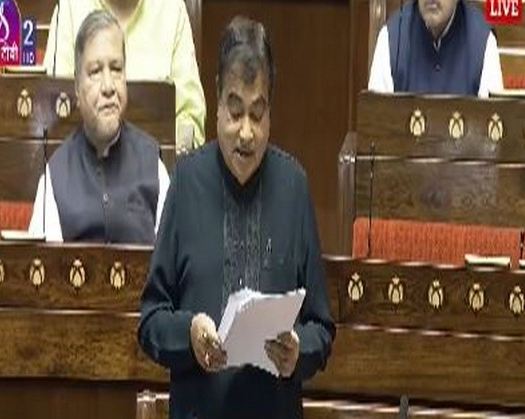New Delhi: In a significant development, Union Minister Nitin Gadkari emphasized during a session of the Rajya Sabha on Wednesday that India's aviation sector is poised to utilize 20 percent of bio-aviation fuel within the next five years.
"Within the forthcoming five years, our aviation industry is set to embrace 20 percent of bio-aviation fuel, sustainable aviation fuel, with the commencement of production starting from Parali (Stubble) and farmers will receive a remuneration of Rs 2500 per ton," Gadkari stated during his response in Rajya Sabha.
Furthermore, the minister underscored the initiative of the Ministry of Road Transport and Highways in adopting bio-bitumen for road construction, a move that is expected to contribute to India's efforts in reducing its dependence on imported Bitumen. Bio-bitumen, a bio-based binder derived from renewable sources such as crop stubble, is utilized to bind the surfaces of paved roads.
"We boast the largest road network globally, with 90 percent of our roads utilizing Bitumen layers. The consumption of Bitumen in the fiscal year 2023-24 is projected to reach 88 lakh tons, with an anticipated increase to 100 lakh tons in 2024-25. Consequently, we are reliant on importing 50 percent of our Bitumen, with the annual import cost ranging from Rs 25,000 to 30,000 crore," Gadkari elaborated.
The minister also highlighted the collaboration between the Central Road Research Institute (CRRI) in New Delhi and the Indian Institute of Petroleum (IIP) in Dehradun to develop Bio Bitumen from crop stubble. He noted that this initiative has not only empowered farmers but has also transformed them into 'Energy Providers.'
"Our farmers have evolved from mere 'Anna Daata' to 'Urja Daata,' from 'Urja Daata' to 'Bitumen Daata,' and now, they are recognized as 'Hawa Irdhan Daata' (Air Fuel Providers)," Gadkari added.
Additionally, the minister shared that a test section has been established on the Shamli-Muzaffarnagar Section of NH-709AD in November 2022 for a three-year performance monitoring period to evaluate the feasibility of bio-bitumen in road construction.
The National Highways Authority of India (NHAI) has also expressed interest in conducting a trial with bio-bitumen on the Jorabat-Shillong section of NH-40. The potential advantages of bio-bitumen include a reduction in Bitumen import, a decrease in Green House Gas (GHG) emissions, and the opportunity for farmers and Micro, Small, and Medium Enterprises (MSMEs) to generate revenue and create employment opportunities.












